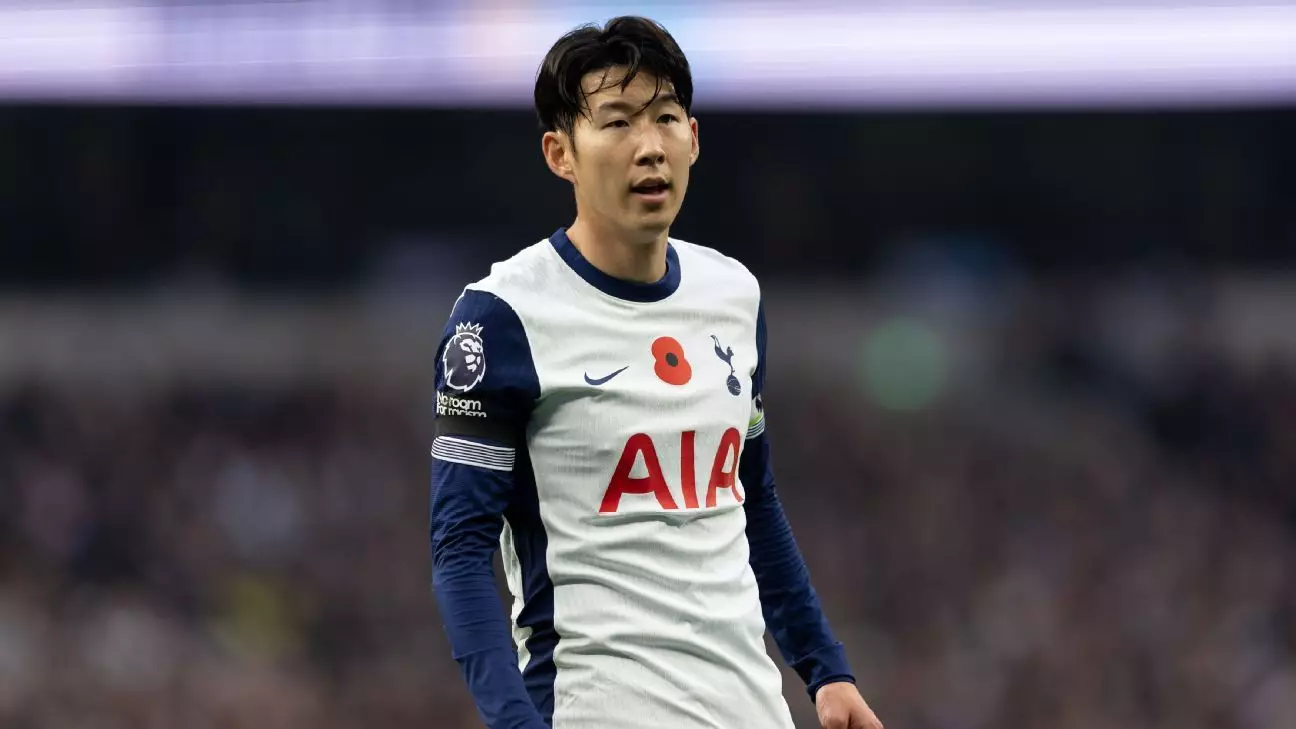In the world of professional sports, the balance between club commitments and national duties often presents a complex puzzle for athletes, coaches, and management. Son Heung-Min, the South Korean forward and talisman for Tottenham Hotspur, stands as a prime example of this dilemma as he navigates the challenges associated with his international obligations. As the football season progresses and World Cup qualifiers loom, his club manager, Ange Postecoglou, emphasizes the importance of Son’s health and fitness in this joint endeavor with the South Korean national team.
In recent months, Son has found himself at a crossroads. After a promising start to the season, injuries threatened to derail not only his club’s aspirations in the Premier League but also South Korea’s chances in upcoming crucial matches against Kuwait and Palestine. Postecoglou acknowledges these challenges, suggesting a cautious approach to integrating Son back into competitive play. His perspective on the situation reflects a broader understanding of modern football where players often juggle multiple commitments, requiring both managerial insight and strategic planning.
Despite his eagerness to contribute to both his club and country, Son’s well-being remains the priority. The recent comments from Hong Myung-Bo, the newly appointed South Korean national team coach, underscore this sentiment. His commitment to protecting Son’s physical health during the international window indicates a collaborative spirit, aimed at maximizing the forward’s effectiveness without exacerbating his previous injuries. Such a relationship between club and country is critical for Son’s longevity, given the physical demands placed upon players at top levels.
Son’s recent struggle with injuries raises important questions about the recovery process for professional athletes. Injuries take a toll not only on physical health but also on a player’s mental state and confidence. Postecoglou’s decision to manage Son’s game time, introducing him gradually into the lineup, illustrates a responsible approach towards rehabilitation. This strategy is crucial; an overzealous return to activity could risk a repeat of setbacks witnessed earlier in the season.
Analyzing Son’s performance patterns reveals a clear correlation between game intensity and his injury history. The forward’s unfortunate re-aggravation of a hamstring injury shortly after a return indicates the absence of a suitable recovery period. What often goes unnoticed is the fine line athletes walk, balancing the desire to perform and the imperative need to heed their body’s signals. Effective communication between club medical teams and national trainers can initiate a more robust strategy towards managing such delicate situations.
The relationship between Postecoglou and Hong is indeed pivotal. A united front between domestic and national teams can foster optimal conditions for players like Son. Open dialogue and shared insight into an athlete’s fitness levels can help eliminate potential friction points, ensuring that athletes can contribute meaningfully without jeopardizing their health. Both coaches must acknowledge each other’s perspectives to create an environment where players’ welfare is paramount.
In today’s context, this collaborative approach is increasingly necessary in a sport that sees players subjected to relentless schedules and expectations from fans and stakeholders alike. By creating a foundation of trust and mutual respect, both coaches can work together to make decisions that reflect the dual objectives of club success and national pride.
As the international break approaches, all eyes will be on Son Heung-Min. His ability to impact both Spurs and the South Korean national team is not only essential; it’s emblematic of the struggles many athletes face today. By acknowledging the demands placed on their health and well-being, necessary measures can be put into place to help him thrive amidst the pressures of modern football.
The situation surrounding Son serves as a microcosm of a larger issue in sports—where the line between individual welfare and team aspirations frequently intersects. By promoting understanding and collaboration between clubs and national agreements, stakeholders can ensure that players like Son strive not just to perform but to do so sustainably throughout their careers. The future looks promising, but only through diligent management and careful negotiations can both club and country maximize their elite talent.

